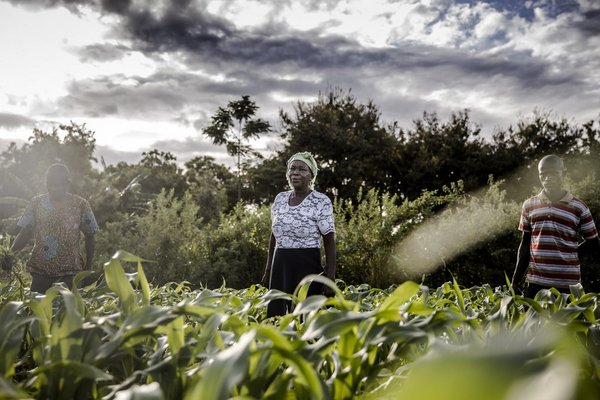- Share this article
- Subscribe to our newsletter
How to achieve global sustainable development?
The current development model is not sustainable, the first quadrennial Global Sustainable Development Report prepared by an independent group of scientists appointed by the United Nations Secretary-General finds. The report entitled “The Future is Now: Science for Achieving Sustainable Development” was published mid-September 2019 and evaluates progress on the 2030 Sustainable Development Agenda.
The progress made in the last two decades is in danger of being reversed through worsening social inequalities and potentially irreversible declines in the natural environment that sustains us, the scientists warn. A far more optimistic future is still attainable, but only by drastically changing development policies, incentives and actions, they conclude.
The report argues that understanding the interconnections between the individual Sustainable Development Goals (SDGs) and the concrete systems that define society today will be essential to devise policies that manage difficult trade-offs.
Need to transform key areas of human activities
Creating economic growth just by increasing consumption of material goods is no longer a viable option at the global level: Projections indicate that the global use of materials is set to almost double between 2017 and 2060, from 89 Gigatons to 167 Gigatons, with correspondingly increased levels of greenhouse gas emissions, and other toxic effects such as those from mining and other pollution sources.
According to the scientists, the world must transform a number of key areas of human activities, including food, energy, consumption and production, and cities. The report’s Call to Action identifies 20 points where interventions can create transformative and accelerated progress towards multiple goals and targets in the coming decade.
These transformations can come about through coordinated action by governments, business, communities, civil society and individuals. Science has a particularly vital role to play—a role that can be further strengthened by increasing investment in science for sustainability and in natural and social science institutions based in developing countries.
Developed countries need to change production and consumption patterns
The report emphasises that achieving the SDGs fundamentally requires decoupling economic growth from environmental degradation, while at the same time reducing social and gender inequalities in wealth, income and access to opportunities.
Developed countries need to change their production and consumption patterns, including limiting the use of fossil fuels and plastics, and have to encourage public and private investments that align with the SDGs.
The scientists suggest that the UN could promote a new sustainable-development investment label, with clear parameters and guidelines to encourage and reward investment in those industries and financial markets that advance sustainable development, and discourage investment in those that do not.
The extensive transformation required will not be easy, and the report suggests that a deep scientific understanding is needed to anticipate and mitigate the tensions and trade-offs inherent in widespread structural change.
Sustainability science and cross-disciplinary partnerships
The report makes the case for shifting current research priorities and supporting innovative
approaches to sustainability science, emphasising cross-disciplinary partnerships, and committing support and resources to scientific institutions, particularly in the global South.
Development aid budgets should prioritise boosting scientific capacity and access in the global South. UN Member States, research consortia and libraries should work together to improve cross-border and inter-disciplinary collaborations in science for the SDGs.
(UN/ile)
More information: sustainabledevelopment.un.org/globalsdreport/2019





Add a comment
Be the First to Comment